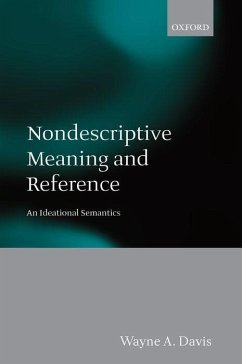The key is to drop the assumption that the values of intension functions are the referents of the words whose meaning they represent, and to abandon the necessity of identity for logical modalities. Many other pillars of contemporary philosophical semantics, such as the twin earth arguments, are shown to be unfounded.
Wayne Davis presents a highly original approach to the foundations of semantics, showing how the so-called "expression" theory of meaning can handle names and other problematic cases of nondescriptive meaning. The fact that thoughts have parts ("ideas" or "concepts") is fundamental: Davis argues that like other unstructured words, names mean what they do because they are conventionally used to express atomic or basic ideas. In the process he shows that many pillars of contemporary philosophical semantics, from twin earth arguments to the necessity of identity, are unfounded.
Wayne Davis presents a highly original approach to the foundations of semantics, showing how the so-called "expression" theory of meaning can handle names and other problematic cases of nondescriptive meaning. The fact that thoughts have parts ("ideas" or "concepts") is fundamental: Davis argues that like other unstructured words, names mean what they do because they are conventionally used to express atomic or basic ideas. In the process he shows that many pillars of contemporary philosophical semantics, from twin earth arguments to the necessity of identity, are unfounded.








